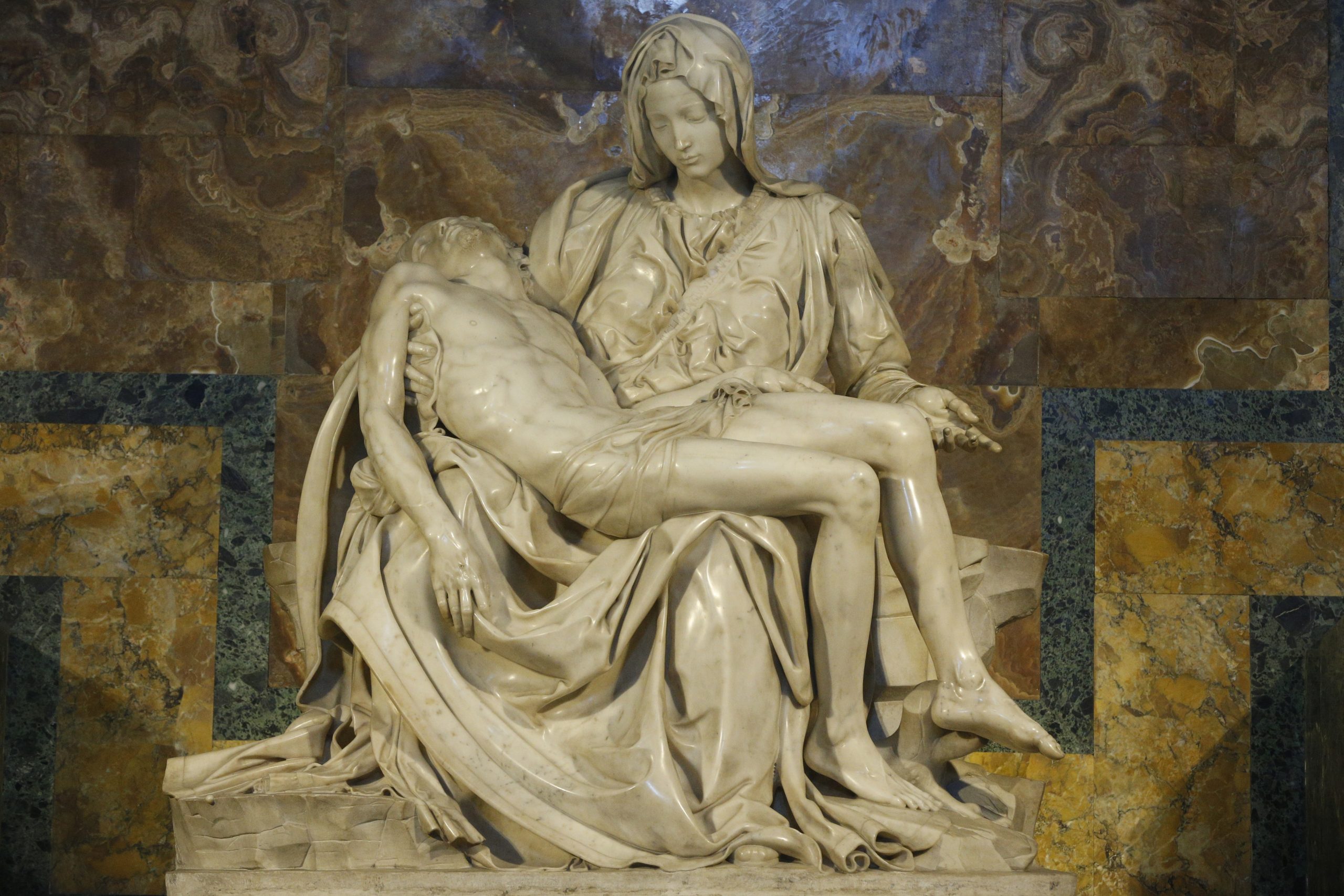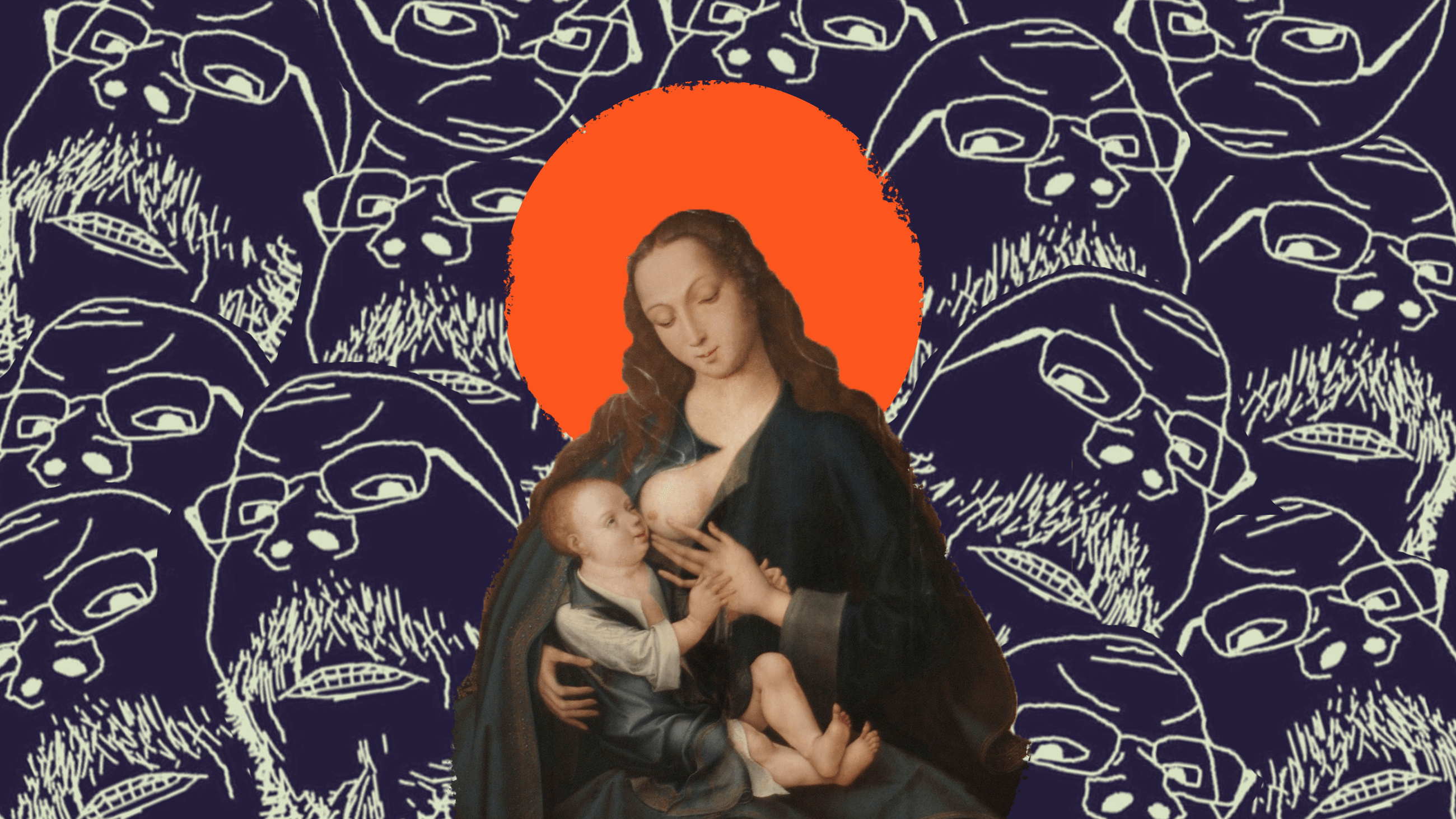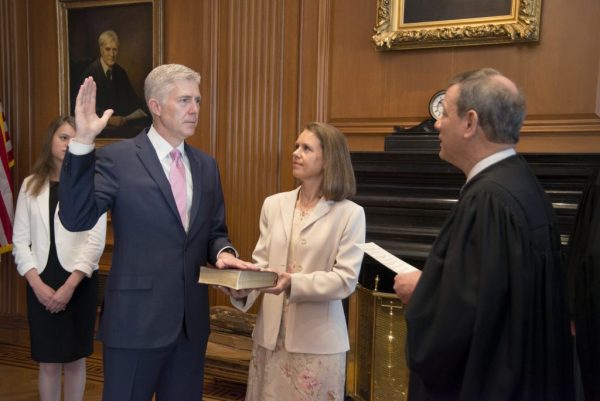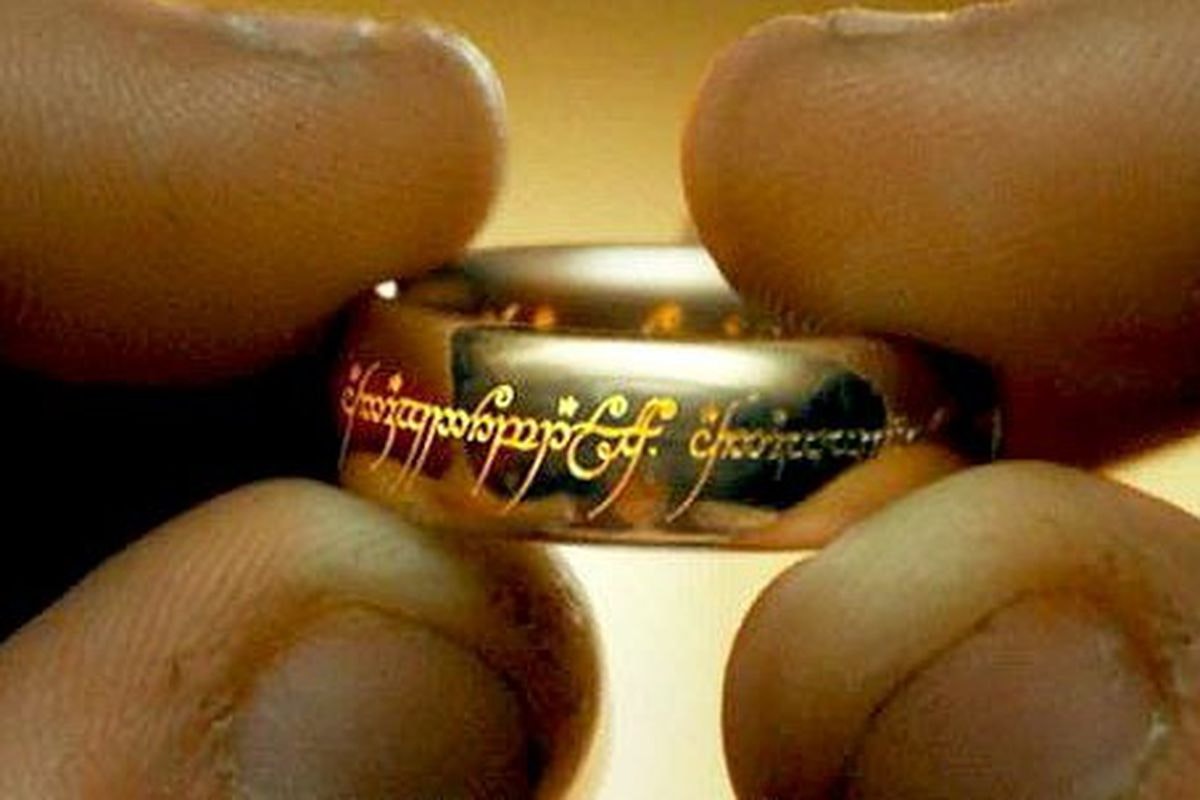Liberal feminism relentlessly aggresses against the female body and soul.
What Mary Knew

On mothers and the mother of God.
Christmas is coming, which means it’s once again time to huddle by the glow of our laptops and argue. Actually that’s what we do year-round, but at the Christmas season we traditionally break out the primo vintage squabbles: the ones we indulge in every year with no hope of resolution, the ones that promise hours of bickering with no conceivable end or compromise. It’s nice to know some things never change.
One debate we typically resuscitate this time of year is whether “Mary Did You Know” is a good song. It’s a modern carol, a 1991 release with covers by the American Idol finalist Clay Aiken and the notable cleric CeeLo Green. I like the Pentatonix recording, because I am the kind of crass oaf who puts marshmallows in his hot chocolate. But the main point of contention is the lyrics, composed in 1984 by pastor Mark Lowry.
The whole song consists of questions which Lowry wishes he could pose to Mary, mother of God. “Mary did you know / that your baby boy / will one day walk on water? / Mary did you know / that your baby boy / will heal our sons and daughters?” The subjects range from specific miracles Jesus performed (“the lame will leap / the dumb will speak…”) to the profundities of his nature as the incarnate God (“that sleeping child you’re holding / is the great I AM”).
Mary was a young girl (a parthenos, in the Greek of the Bible) when she first learned what was going to happen to her. She was engaged to marry Joseph, a descendant of King David. At the time of her engagement Mary had “known no man”: she was a virgin.
The story of what Mary learned in those days is well known. An angel came to her and said, “you will conceive in your womb and give birth to a son, and you will call his name Jesus.” Jesus, said the angel, “will be called the son of the most high, and the LORD God will give to him the throne of his father David.” Because the child would be conceived by the Holy Spirit and not by man, he would be called “holy—the son of God.”
This was enough to associate Jesus with the Anointed One, the Messiah at whose coming “the lame will leap up like deer and the mute tongue shout for joy.” It was enough to associate Mary, the virgin, with the “young maiden” (the almah, in Hebrew) of Isaiah 7:14: “a young girl will conceive and give birth to a son, and will call him Immanuel,” which means, “God is with us.” The Hebrew prophecies of her Jewish faith, and the ecstatic songs of her relatives Elizabeth and Zechariah, showed her in outline what the life inside her would grow to be.
Who can say what she made of all this as she “pondered these things in her heart”? How precise would her foreknowledge become? That is the subject of our endless annual debate, and even if it were within my power to resolve it I would hardly want to spoil the fun. But I do want to point out that we are talking here about a pregnant mother, and not an academic or a theologian. The comparison is entirely to Mary’s advantage. Because as all pregnant mothers are aware, and most academics fail utterly to realize, there is more than one way of knowing something.
“Do You Not Know Me?”
Mary knew some things for certain, because they had been spelled out for her. She knew for instance that her son was the great healer the prophets had waited for. She knew that after Jesus, history would turn a corner. She would have watched him give sight to the blind and thought, “that’s my son.”
Other things, though, she may have only suspected. No one told her Jesus would be God himself. God’s son, yes. God’s priest, God’s chosen one, God’s king on earth: the Messiah was fated to be all those things. But when the child of her womb turned to his friends and said “I and the father are one,” he was unveiling a fathomless mystery that two thousand years of worship have not exhausted. Mary could hardly have hammered out the relevant points of doctrine in advance.
But if the mystery means anything at all, it means that God is known by knowing this man Jesus, and that no erudite treatise can reveal divinity better than the experience of meeting the man himself. And who knows a man better than his own mother? When Jesus said who he really was—that he was God—maybe then too Mary thought, “yes. He is. That’s my son.”
And so when the state arrested him on false charges, when they consigned him to a slave’s death by torture, maybe Mary was not surprised to see what few could have predicted. Maybe she knew it was just like him, her headstrong boy, to offer his hands to the nails rather than forswear himself or deny his father.
Maybe she felt the sorrow of it all more keenly because it was a sorrow of recognition. Maybe she saw at once that he had gone to do what he had to do because of who he was. Maybe she learned then the meaning of the words a wise man said to her when he was just a baby: “a sword will pierce your heart as well.”
Beyond all the prophecies, what I suspect is that Mary knew the kinds of things all mothers know. I have spoken to women who knew what their babies would be like from the rhythm of their kicks against the uterine wall. Pregnant women will tell you things like “he’s a fighter, this one”—and then the kid grows up to join the marines. How did she know? But she knew.
When Mary visited her kinswoman Elizabeth, who also was pregnant with a miraculous child, “the baby leaped in her womb”—and it was at that moment that Elizabeth and Mary broke into song about who these boys would be to each other and to the world.
Expectant mothers know everything about their children, and nothing. They know that an entire person waits there to be born. Then that child emerges and does things that are at once totally unexpected and utterly in character. Mary had no idea—no one did—what specific form her son’s life would take. But in a primal way, untouchable by words, she knew who he was almost immediately. Mothers often do.
The Handmaid of the Lord
This year, outside the Supreme Court, activists staged a demonstration in which three women (none of them actually pregnant) made a gleeful display of taking the abortion pill milfepristone. The group that organized this performance is called Shout Your Abortion, which is something no one was supposed to want to do until recently.
Today, the most radical advocates present abortion not simply as a tragic exigency that some women must resort to in desperate situations, but as a miracle of science to which women have a right under any circumstances. Unwanted pregnancy, even pregnancy resulting from consensual unprotected sex, is represented as a degrading kind of servitude. Arguing before the Court, Julie Rikelman of the Center for Reproductive Rights suggested that letting states ban the procedure after 15 weeks of pregnancy would “allow states to force women to remain pregnant and give birth against their will.”
Abortion is not the only effort we are making to slip the surly bonds of gestation. “Imagine a world where it’s possible to produce children without placing any burden on women,” wrote Michelle Peterson in ZME Science this year. She was referring to artificial wombs, which would gestate babies outside the mother’s body. A world of external fetuses is a world “devoid of the obstacles to career advancement that women currently face.”
Without even wading into the complexities of the relevant debates, we can read in this rhetoric a thoroughgoing hostility to the biological and spiritual nature of being a mother. A woman who chooses to get pregnant chooses to knit an independent being into existence with her own flesh. A woman who forgoes maximal earnings to nurture that child leaves measurable gain on the table in return for the totalizing claims of family and of love.
It has become customary to speak about this kind of service as “unpaid labor.” But that is to analyze love using categories of which love knows nothing. “If American women earned minimum wage for the unpaid work they do around the house and caring for relatives, they would have made $1.5 trillion last year,” wrote Gus Wezerek and Kristen R. Ghodsee in the New York Times. They might as well have calculated the shape of yellow or reported on the sex of a potato. A thousand times that much money would be laughably inadequate to measure the worth of what mothers do every hour, every day, every year of their lives when they shape new bodies from the stuff of their own flesh, new souls from the stuff of their own love.
Any housewife can tell you this if she has a good husband and good children. Sit down at her table and watch the way they look at her: she is the object of their awe and adoration, blessed amongst women and highly favored. If they cut her a check at the end of the day it would be an insult. They will love and honor her until she dies or they do. She is worth nothing less.
There is a kind of servitude in this—“behold the doulē, the serving-girl, of the LORD,” says Mary. But it is the kind of servitude that stands infinitely above wage labor, not below it. “They are but beggars that can count their worth,” says Juliet to Romeo at the moment of their marriage: the handmaid of the lord is highly favored, full of grace, honored and blessed among us at a level on which prices and paychecks are cheap playthings, mere mockery.
And mockery is indeed how we have chosen to regard motherhood and homemaking. We degrade it, we devalue it, we parody and contort it—anything rather than honor it. Our talk of “pregnant people” and “birthing persons” and “pregnant men” is surgical rhetoric, designed to sever motherhood from a woman’s nature as an artificial womb severs gestation from her body. We hate the reality of who Mary is because it is the reality of who we are, in relation to God: totally receptive, offering nothing but our selves, and yet valued beyond measure or price.
Mary knew this when she consented to receive the child in her womb. She knew that from then on she would be wedded bone to bone and flesh to flesh with another life, one totally different from her and yet familiar enough to her that nails in his hands would be a blade in her heart as well. She consented having no idea what he would look like, how he would act, and yet knowing full well that who he was would veer so totally beyond her powers of protection that what he did and suffered would belong to the whole world.
She knew, in other words, what all good mothers know when they choose to bear a child. She knew that he was hers and not hers, that his life would look exactly as she expected and nothing like she planned. She knew that everything she was giving up in control she would receive again in love, and that a thousand fold. And in full knowledge of all that, she said yes.
The American Mind presents a range of perspectives. Views are writers’ own and do not necessarily represent those of The Claremont Institute.
The American Mind is a publication of the Claremont Institute, a non-profit 501(c)(3) organization, dedicated to restoring the principles of the American Founding to their rightful, preeminent authority in our national life. Interested in supporting our work? Gifts to the Claremont Institute are tax-deductible.
On oaths and their moral focus.
Kids' lit gets lit.
Aborting reason.
Our human need for connection should keep us grounded in reality.
The Left’s future leaves marriage and family in the past.






